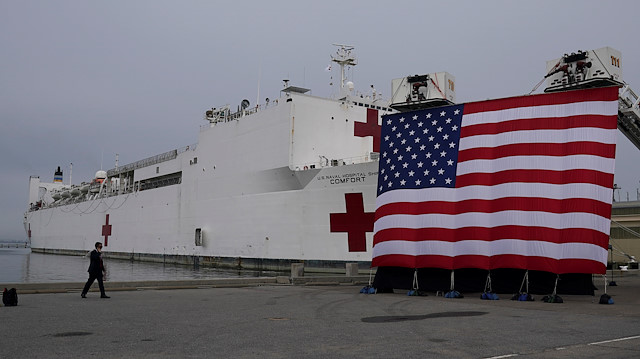
MICHIGAN:
CONFIRMED CASES: 4,650
DEATHS: 111
Nurse Angela, 49, says the emergency room at her hospital near Flint, Michigan, is eerily quiet. "We've all been saying this is the calm before storm," said Angela, who asked that only her first name be used.
The patients who trickle in are "very sick" with the COVID-19 respiratory illness, she said, "and they just decline really quickly."
As they go from room to room, the nurses discuss how many things they are contaminating due to their limited protective equipment.
"You'd have to walk around with someone with Clorox wipes all night walking behind you," she said. "The contamination is just so scary for me."
She accepts that she and most of her colleagues may be infected. But she is worried about her daughter and her sister, who are both nurses, and she worries about infecting her 58-year-old husband.
Angela's daughter has sent her three children, including an 18-month-old who suffers from asthma, to stay with their father to avoid possibly infecting them.
"I normally see my grandchildren twice a week and I haven't seen them. It's hard. I just cannot fathom what my daughter's going through," Angela said.
Many of her co-workers have done the same, packing off children to live with relatives because they are terrified, not so much of contracting the disease, but of passing it on.
Some of them are talking about quitting because they feel unprotected.
Angela would not judge them, she said, but she told a friend recently, "You have to remember, what if your kid gets sick or your mom gets sick, who's going to take care of them when you take them to the hospital if all of us just leave?"


